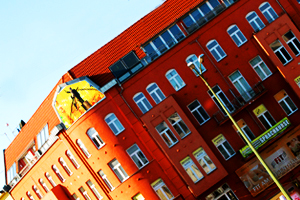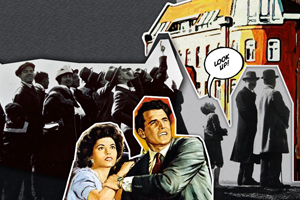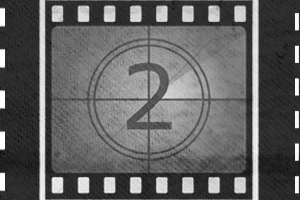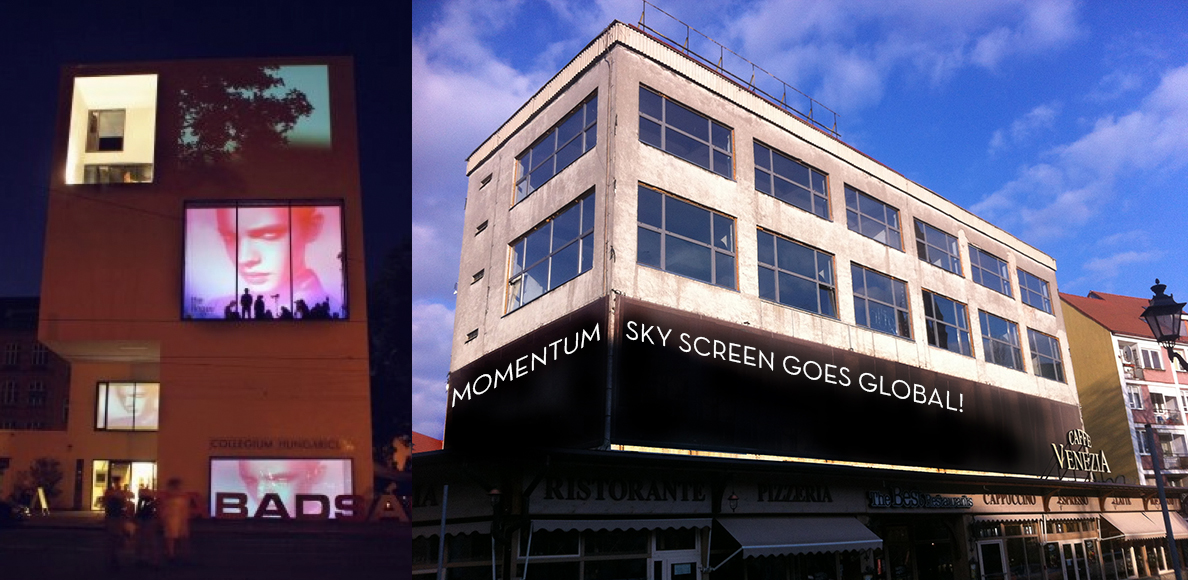
Our partner locations: Collegium Hungaricum Berlin (left) / Polmozbyt, pl. Orła Białego – TRAFO (right)
MASS AND MESS
Curated by David Szauder
Featuring:
David Mozny, Eva Magyarosi, Dyorgy Kovasznai, Istvan Horkay, Bart Hess, Adam Magyar
Vernissage:
14 APRIL 2013
Collegium Hungaricum, Museum Island, Berlin
Uslu Airlines, Rosenthalerplatz, Berlin
TRAFO | Baltic Contemporary at Odra Zoo, Polmozbyt, pl. Orła Białego – 10, Szczecin, Poland
Program:
14 APRIL – 30 MAY 2013
Panel Discussion:
On How to Collect and Display Video Art
With Prof. Dr. Wulf Herzogenrath (Director Fine Arts, Akademie der Künste), Candice Breitz (Artist, Professor, Braunschweig University), Christian Jankowski (Artist, Professor, Akademie der Bildende Künste, Stuttgart), Ivo Wessel (Collector, Founder, Videoart at Midnight), Sylvain Levy (Collector, Founder, dslcollection), Elizabeth Markevitch (Founder, CEO, Ikono TV), moderated by Thomas Eller (curator/artist/writer)
PLACE: Collegium Hungaricum, Dorotheenstr. 12, 10117 Berlin
DATE: 28 APRIL 2013 AT 4:00PM
– More info here about the panel discussion –
 |
MOMENTUM is proud to announce our collaboration with the Collegium Hungaricum (Berlin) and TRAFO (the new Kunsthalle in Szczecin, Poland) to mark our first international SKY SCREEN program.
MOMENTUM’s first internationally hosted SKY SCREEN program takes to the streets on April 14th, screening in 3 locations simultaneously. SKY SCREEN turns its hosts into an ever-changing canvas for contemporary art, bringing video art out of darkened galleries and onto the streets for everyone to see.
In Berlin, SKY SCREEN will be at our usual location overlooking Rosenthaler Platz, as well as on the media-facade of the Collegium Hungaricum on Museum Island. In Szczecin, SKY SCREEN overlooks the National Art School in an artist-run project space. This SKY SCREEN program is curated by David Szauder, focusing on Hungarian animation and media art, and will open in conjunction with the first TRAFO exhibition in Szczecin and with Gallery Weekend in Berlin.
Video art is still a daunting media for most collectors and art lovers. MOMENTUM and CHB will open up a discussion on the topic of why collecting video art is still intimidating, and why the commercial value of time-based media has not measured up to its institutional prominence. Aiming to address how video can be effectively collected and shown in a diversity of groundbreaking ways, MOMENTUM invites a panel of prominent international collectors, curators, and gallerists. MOMENTUM is a non-profit global platform for time-based art, with headquarters in Berlin. Through our program of Exhibitions, Kunst Salons, and Public Video Art Initiatives, we are dedicated to providing a platform for exceptional artists working with time-based practices. This discussion is accompanying our Sky Screen program for Video Art in Public Spaces, concurrently screening at MOMENTUM, CHB, and TRAFO Szczecin.
MASS AND MESS features work by:
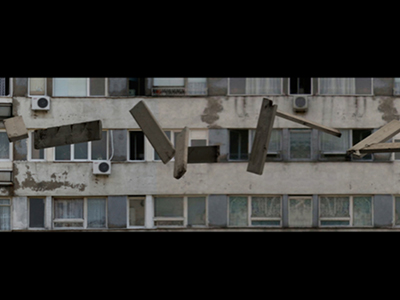
David Mozny – Rahova
2009, 7:39 min
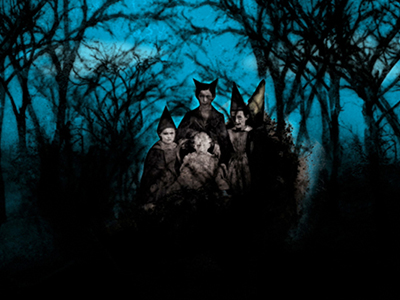
Eva Magyarosi – Invisible Drawings
2012, 13:20 min
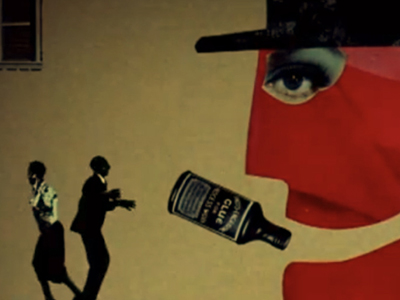
György Kovásznai – Monolog
1963, 13 min
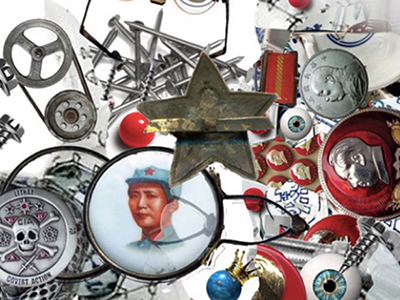
Istvan Horkay – Covert Action
2013, 4:41 min
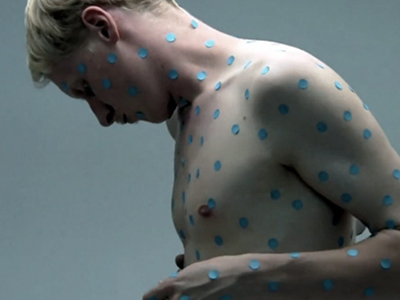
Bart Hess – Grow on You
2010, 1:14 min
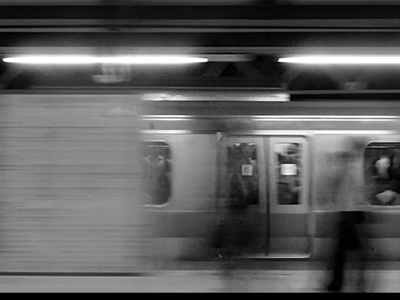
Adam Magyar – Tokyo Stainless
2010, 8 min
Curated by David Szauder
MASS AND MESS is to be considered as a reflection on politics, history and society through a kind of selfexamination. The starting point is the video of David Mozny (Rahova), a really well structured and symbolical deconstruction of our architectural environment: the mass is falling into pieces creating new units, individual pieces. The next is of Eva Magyarosi’s work, attempting to arrange these pieces as a reflection of the inner world of the artist, a gesture to face her grandfather’s past, but the arrangement itself is generated by the history. György Kovásznai’s piece is somewhere between the outer play, the history and the inner play of the individual, being a cynical handling of the story of the 20th century. István Horkay’s Covert action, set up especially for skyscreen program, however, is a simple gesture to put “everything on the table” as they are given by the past. By his humour a positive taste of the past is offered. Horkay’s video can be considered as the acme of the “mass” as from that point the examination is a virtual return back to the inner world, represented by Bart Hess’s video. His blue sticks are not removable, as they are temporary or constant grooving in his skin. Bart Hess’s video is also a return to the human body, or to the state of mass. The last piece is more like a vision of the society form outside by Ádám Magyar representing everyday people in everyday situations. Faces, complexions, visages: segments of our society. (David Szauder)
David Szauder was born in 1976 in Hungary and attended Eötvös Lorand University, Budapest and studied Intermedia at the Hungarian University of Fine Arts, Budapest in 2004. Szauder received a scholarship to the TAIK School of Arts, Design and Architecture – Aalto Univeristy, Helsinki, where he focused on environmental studies and media design. Szauder then moved to Berlin and works for the Collegium Hungaricum as a media artist and curator. In 2012, Szauder founded a cultural association – Culture Democracy CUD e.V.
__________________________
Also showing in Szczecin
SKYSCREEN
Curated by Rachel Rits-Volloch
AES+F, Jiang Zhi, Cao Fei, Sumugan Sivanesan, MAP Office
Time:
8:00 PM until midnight, weekdays
8:00 PM – 2:00 AM. weekends
ALSO ON DISPLAY IN
COLLEGIUM HUNGARICUM BERLIN
ON THE SUNDAY OF GALLERY WEEKEND, APRIL 28th
MORE INFO ON THE ARTIST AND WORKS HERE >
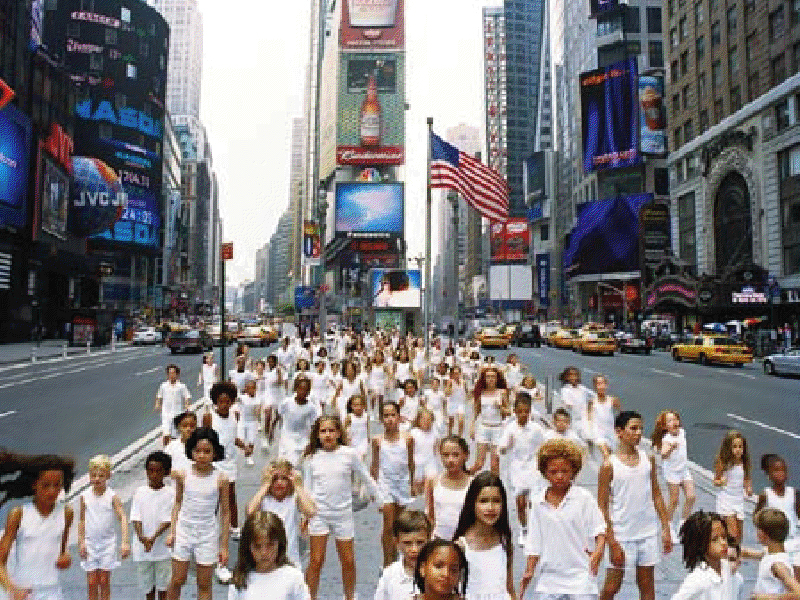
AES+F
King of the Forest, KFNY
2003, Video, 11:01 min
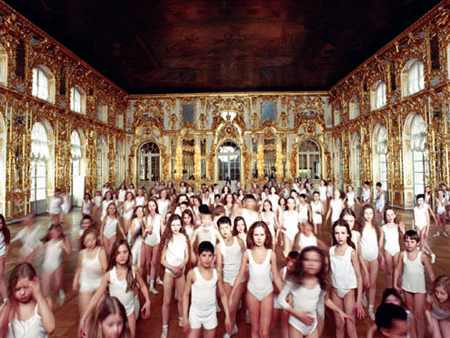
AES+F
King of the Forest, Le Roi des Aulnes
2001, Video, 9:07 min
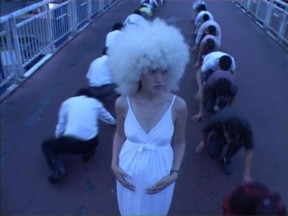
Jiang Zhi
Post Pause
2004, Video, 10 mins
Courtesy of the dslcollection
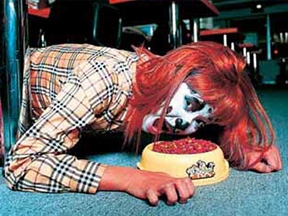
Cao Fei
Rabid Dogs
2002, Video, 8 min
Courtesy of the dslcollection
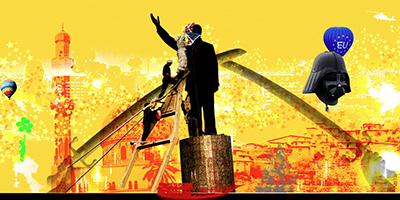
Sumugan Sivanesan
A Children’s Book of War
2010, Video animation with an accompanying text
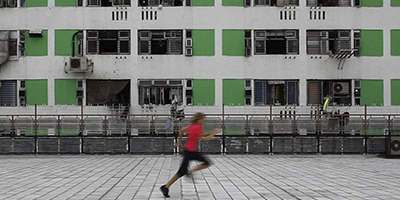
MAP Office
Runscape
2010, Video, 24:18 min
__________________________

The Collegium Hungaricum, founded in 1924, is a prominent multidisciplinary cultural institution dedicated to the exploration of art, science, technology and lifestyle in Berlin. The mission of the CHB is to actively stimulate discourse pertaining to current issues, ideas and concepts, in order to further enrich the dialogue surrounding the European cultural experience while simultaneously disseminating Hungarian culture through various events.
The institute has been operating since the Second World War and is regarded as leading a wide array of programming including concerts, literary events, book fairs, photo exhibitions, film screenings, festivals, art exhibitions, technical installations, symposiums, workshops, panel discussions while also hosting an in house public library with over 9000 individual pieces of varying media. The Neubau CHB is a five floor cubist building designed by Schweger Architects in 2007 with a focus on harmonizing trends in Hungarian and German modern design. The structure acts as a highly flexible media facade of which the possibilities for artistic interaction remain limitless.
The Collegium Hungaricum is a part of the Balassi Institute for the promotion of Hungarian culture and also acts as host to the Moholy-Nagy Galerie.

uslu airlines is a Berlin based luxury cosmetics brand created by Türkish makeup artist Feride Uslu and German entrepreneurial master mind Jan Mihm in 2003. Uslu Airlines offers over products in 180 locations in over 170 countries and has hosted MOMENTUM’s SKY SCREEN at their HQ in Rosenthalerplatz, Berlin since April, 2012.

Baltic Contemporary is a newly founded centre for Contemporary Art, located in Szczecin, with the mission to link Szczecin with cultural institutions in the Baltic region and beyond, while hosting its own programme of contemporary art. TRAFO is the Kunsthalle associated with this initiative, which will open in August 2013.
TRAFO – Trafostacja Sztuki – is the new center for contemporary art in Szczecin.
TRAFO sets a new creative space of unrestrained activity and interdisciplinary experimentation.
TRAFO, using its cross-border location within the Baltic Sea region and the immediate vicinity to Berlin, becomes a transregional, international exhibition space.
TRAFO is a unique “display window,” through which it communicates its artistic appearance with the world, and through which the world can co-create the artistic appearance of Szczecin.
TRAFO supports the development of contemporary art on many different levels by organizing not only exhibition activities, but also art education, publishing, international collaboration and artistic exchange under Artist-in-Residence program.
TRAFO will provide visitors with a brand new, exceptional exhibition space in the now restored historic building in ul. Świętego Ducha in Szczecin.

 Back to Homepage
Back to Homepage